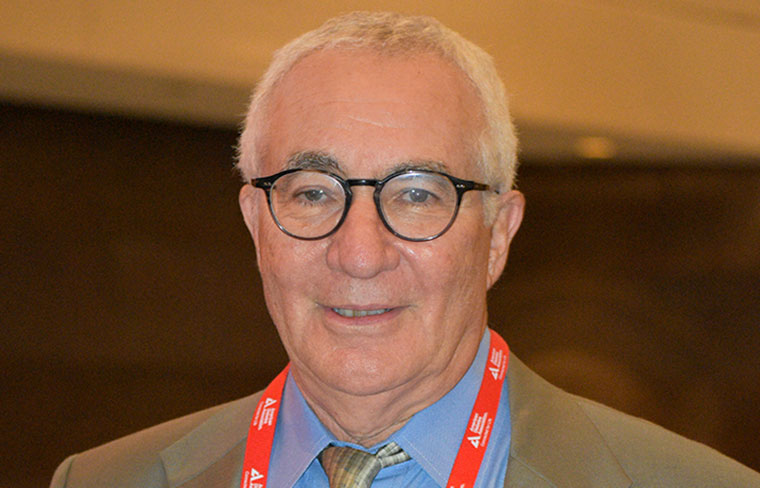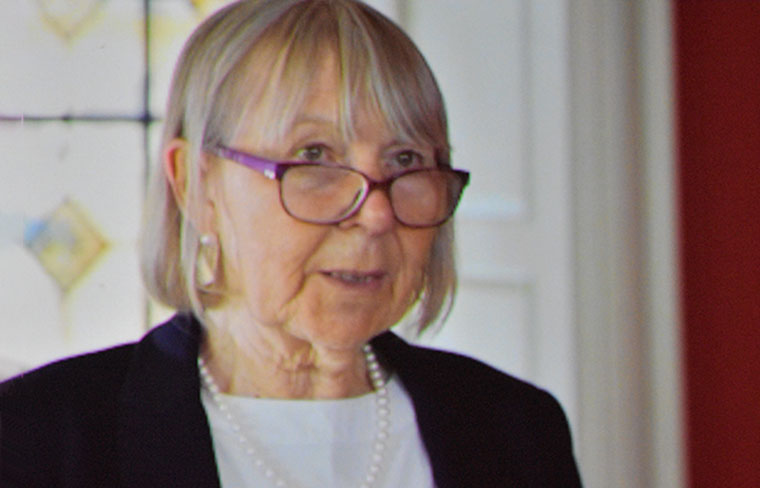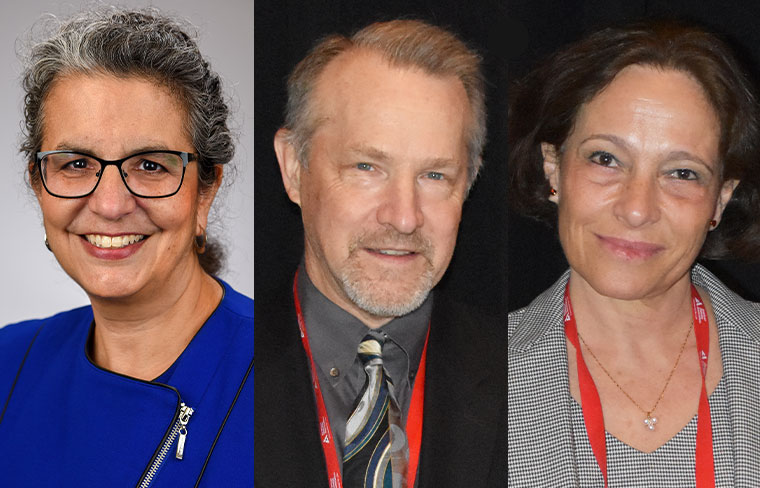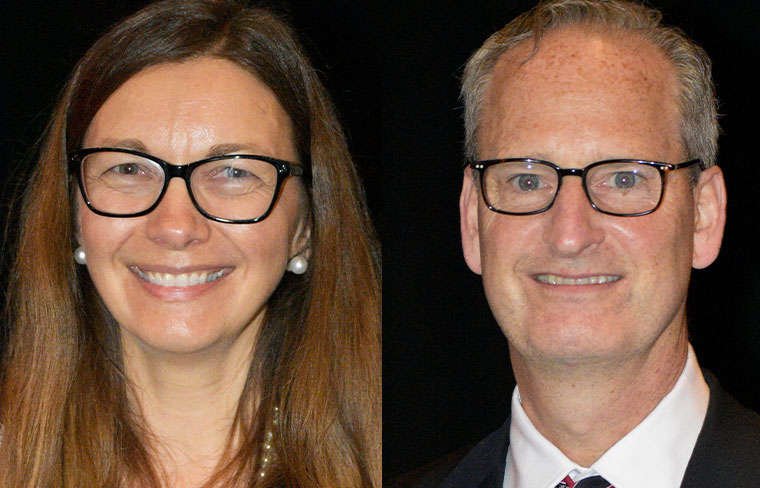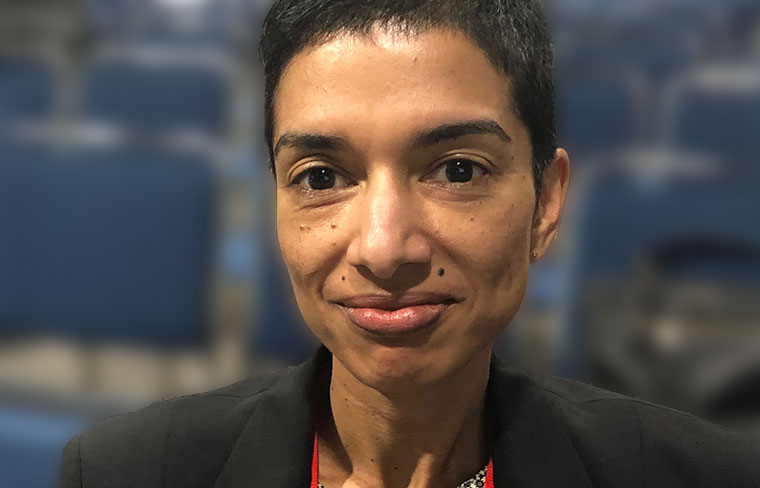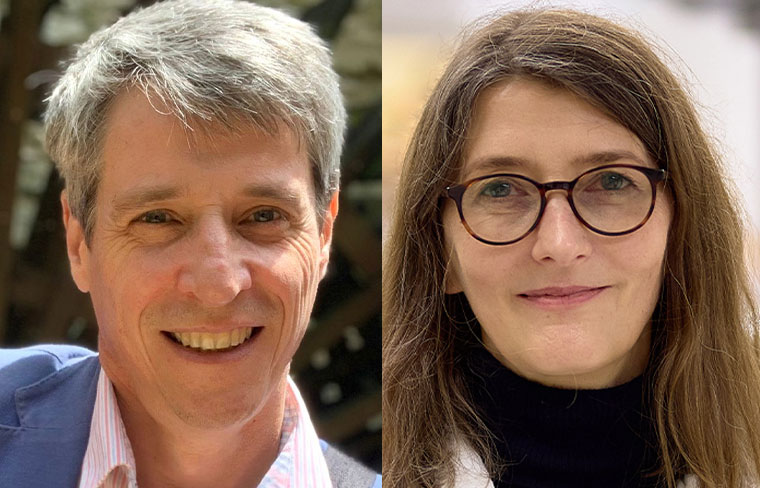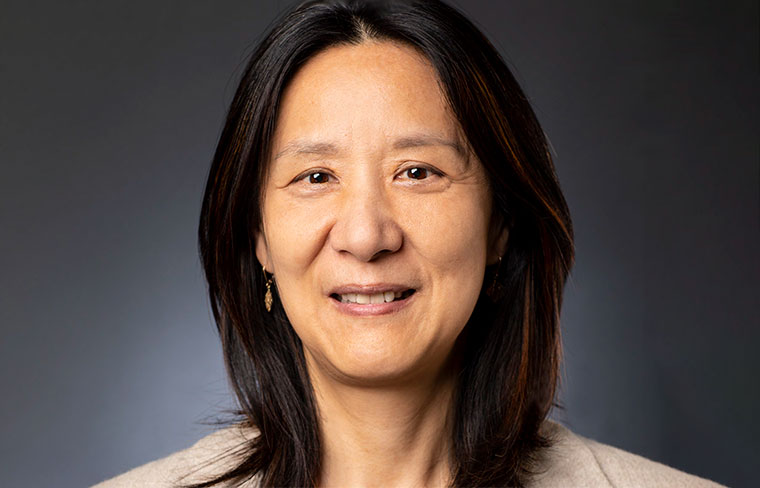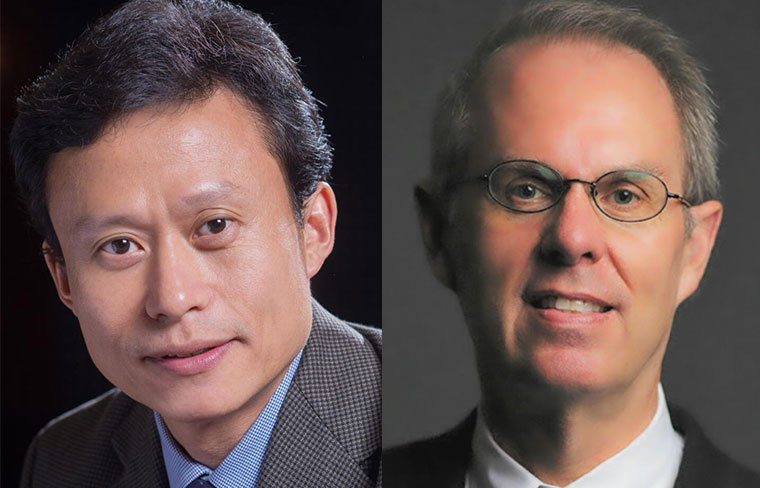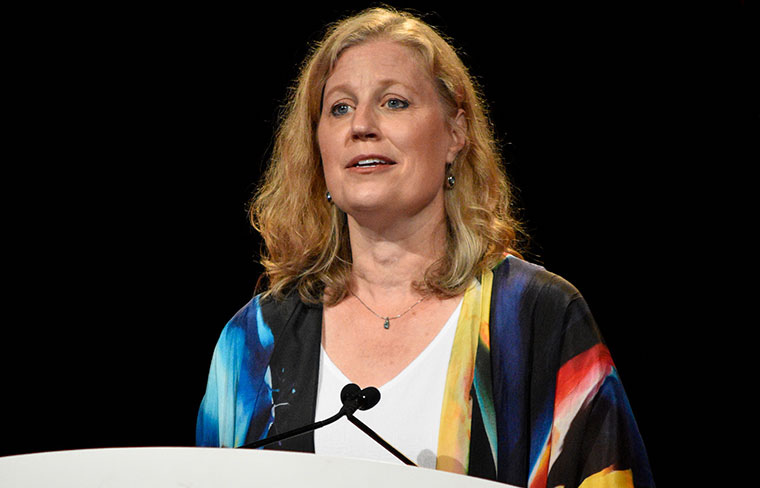-
ADA President, Medicine & Science: Individualized glucose management needed in hospital settings
Guillermo E. Umpierrez, MD, CDCES, FACP, FACE, ADA President, Medicine & Science, discussed the need for individualized glucose management for non-ICU hospital patients with type 2 diabetes on Sunday, June 5, at the 82nd Scientific Sessions.
-
Banting Medal awardee makes the case for glucokinase as a novel target in type 2 diabetes
Frances M. Ashcroft, DBE, FRS, FMedSci, recipient of the ADA’s 2022 Banting Medal for Scientific Achievement, discussed a novel approach—inhibiting glucokinase activity to improve insulin secretion—for treating type 2 diabetes during her award lecture on Sunday, June 5.
-
Panelists review highlights in clinical, basic, and translational science from the past year
Linda DiMeglio, MD, MPH, David A. D’Alessio, MD, and Silvia Corvera, MD (left to right), reviewed some of the key advances in diabetes research and care during the annual Year in Review session.
-
Experts debate whether obesity should replace glucose control as the primary treatment target in type 2 diabetes
The recent emergence of effective anti-obesity medications raises the question of whether weight loss, rather than glucose control, should be considered the primary target for intervention in type 2 diabetes. Ildiko Lingvay, MD, MPH, MSCS, and Jeffrey I. Mechanick, MD, debated that question at the 82nd Scientific Sessions.
-
Stigma is a significant, often overlooked obstacle in diabetes management
Five behavioral health specialists discussed the effects of stigma in diabetes care during an afternoon symposium on Saturday, June 4. Alan M. Delamater, PhD, opened the symposium by recounting his 40-year journey in behavioral diabetes research as he presented the annual Richard R. Rubin Award Lecture.
-
Experts explore ‘paradigm shift’ in obesity management
Losing weight, no matter how much or how little, has health benefits for obese people with type 2 diabetes. And the more they lose, the better the outcome, said Priya Sumithran, PhD, one of three panelists in a Scientific Session symposium that explored the use of lifestyle interventions, bariatric surgery, and pharmacotherapy to manage obesity…
-
Mounting evidence suggests that diabetes may result from CNS dysfunction
Research examining central nervous system control of systemic metabolism suggests that the CNS plays an important, and perhaps a dominant role in the pathogenesis and progression of at least some forms of diabetes. Four leaders in the field, including Vincent Prevot, PhD, and Sarah Stanley, MB, BCh, PhD, will review the latest findings at the…
-
Recent advances offer promise of improved treatment options for diabetes patients with heart failure syndromes
Cardiovascular disease is recognized as one of the most common complications of diabetes. Clinicians have long viewed coronary arterial disease and atherosclerosis as the major culprits, but heart failure has emerged as a larger problem—and one that’s more difficult to manage, according to Rong Tian, MD, PhD.
-
Cardiologists will provide ‘map’ for understanding, managing diabetic cardiomyopathy
Four cardiologists, including Yi Tan, PhD (left), and Harold E. Bays, MD, will discuss the underlying mechanisms, diagnosis, and treatment of cardiomyopathy, a familiar yet underappreciated complication of diabetes. “My sense is we are on the cusp of some really interesting times in cardiomyopathy in diabetes,” Dr. Bays said.
-
Tirzepatide delivers substantial, sustained reductions in body weight in SURMOUNT-1 obesity trial
Study investigators reported first results from the SURMOUNT-1 trial on Saturday, June 4, at the Scientific Sessions. The findings indicate that tirzepatide may be a potential therapeutic option for individuals living with obesity, said Louis J. Aronne, MD.
